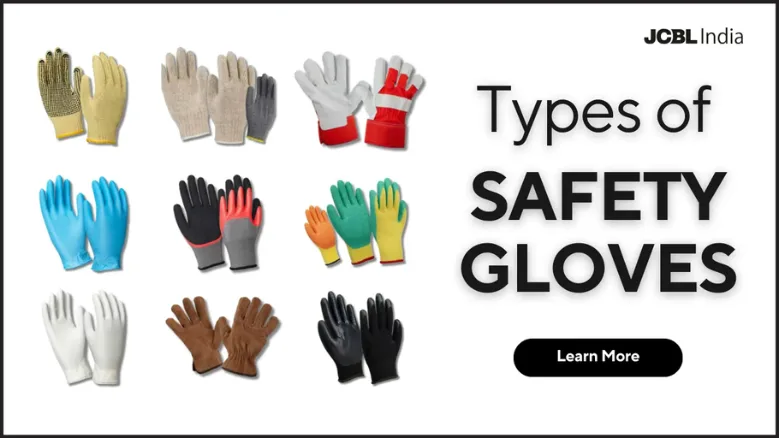Safety Shoes: Everything You Need to Know

Safety shoes are more than just a part of a workplace uniform; they are essential personal protective gear that protects your feet from workplace hazards. Whether you work in construction, manufacturing, or any other high-risk industry, safety shoe is a vital investment in your well-being. In this blog, we will discuss the basics of safety shoes, their importance, types, and applications to help you find the right one. Also, we will discuss the mistakes one should avoid while choosing safety shoes and maintenance tips for their longevity.
What Are Safety Shoes?
Safety shoes are specially designed footwear that are used as personal protective equipment in the workplace. They protect your feet from various workplace hazards, including falling objects, chemical spills, sharp materials, and electrical risks. Unlike regular shoes, highly durable material is used to build safety shoes. They contain reinforced toes and slip-resistant soles to adhere to safety standards.
Here are the key features:
- Toe protection: Contain steel or composite-toe caps to safeguard your toe from heavy impacts.
- Anti-slip soles: Provide grip on slippery surfaces to prevent falls.
- Electrical Hazard Resistance: Protection against electrical shocks.
- Chemical Resistance: Materials that withstand spills and corrosive substances.
Safety shoes combine safety, comfort, and functionality to ensure your workplace safety.
Why Safety Shoes Are Essential In The Workplace
Industries like construction, manufacturing, automotive, and logistics are prone to hazards, making personal protective equipment like safety shoes essential in the workplace. Here are some of the reasons why wearing safety shoes is important in a workplace setting:
Protection Against Falling Objects
In workplaces where heavy tools, machinery, or materials are handled, the risk of falling objects is ever-present. Safety shoes equipped with reinforced toes, such as steel or composite toe caps, provide robust protection against impacts.
Prevention of Punctures
Sharp objects like nails, shards, or metal scraps on worksite floors can easily puncture regular footwear, leading to serious foot injuries. Safety shoes with puncture-resistant soles are designed to counter such hazards. These specialized soles, often made from materials like Kevlar or steel plates, act as a protective layer, ensuring that workers can move freely without the fear of stepping on something harmful.
Slip and Trip Prevention
Slips and trips are among the most common causes of workplace accidents, often resulting in injuries that could have been easily avoided. These shoes with anti-slip soles, made from materials like rubber or polyurethane, offer excellent traction even on slippery surfaces such as oil-slick floors or wet areas.
Electrical Hazard Protection
For those working in environments with electrical hazards, such as electricians or engineers, safety shoes provide essential protection against electrocution. These shoes are designed with non-conductive materials like rubber or leather, preventing electrical currents from passing through the body in case of accidental contact.
Comfort During Long Hours
Safety doesn’t have to come at the cost of comfort. Modern safety shoes are designed with features like cushioned insoles, breathable materials, and ergonomic designs to ensure maximum comfort during long shifts.
Compliance With Workplace Safety Regulations
Beyond the immediate benefits of protection, These shoes are often a mandatory requirement under workplace safety regulations and industry standards. Organizations that fail to comply with these regulations may face legal penalties, fines, or reputational damage.
Types of Safety Shoes and Their Applications
There are various types of safety shoes that are tailored for specific industries and hazards. Here are the most common types of safety shoes:
Steel-Toe Safety Shoes
Steel-toe safety shoes are the most commonly used form of protective footwear by workers across various industries. These shoes feature a reinforced steel toe cap that protects against heavy impacts, compression, and punctures. They are commonly used in construction, manufacturing, and warehousing industries where workers are exposed to falling objects or heavy equipment. Despite their durability, they may not be suitable for environments with extreme temperatures or where metal detectors are in use, as the steel can conduct heat and trigger alarms.
Composite-Toe Safety Shoes
Composite-toe safety shoes provide a lightweight alternative to steel-toe shoes. The toe caps are made of non-metallic materials such as fiberglass, carbon fiber, or Kevlar, offering excellent protection without the added weight. These shoes are ideal for workers in industries like electrical engineering and aviation, where metal-free footwear is required to avoid conducting electricity or interfering with sensitive equipment. They are also more comfortable for prolonged wear in extreme cold or heat as they do not conduct temperature.
Waterproof and Chemical-Resistant Shoes
Designed to protect against water, oil, and chemical spills, these shoes are essential in industries like pharmaceuticals, food processing, and chemical manufacturing. They are made from specialized materials like PVC, rubber, or nitrile, which offer resistance to corrosive substances and prevent liquid penetration. Waterproof safety shoes ensure that workers maintain dry feet even in wet environments, reducing the risk of infections or discomfort caused by prolonged exposure to moisture.
Anti-Slip Safety Shoes
Anti-slip safety shoes are engineered with specially designed soles that provide superior grip on slippery surfaces, such as wet floors, oil spills, or icy paths. These shoes are crucial in industries such as hospitality, healthcare, and logistics, where employees are constantly on the move in environments prone to spills. The enhanced traction reduces the risk of slips, trips, and falls, which are common workplace accidents.
Heat-Resistant Safety Shoes
Heat-resistant safety shoes are built to withstand high temperatures and are often used in industries like metalworking, glass manufacturing, and foundries. They are made from materials that can endure exposure to molten metal, sparks, and extreme heat, protecting workers from burns or heat-related injuries. Some models also include additional features like steel midsoles to safeguard against sharp objects and punctures in hazardous environments.
Each type of safety shoe is designed with specific hazards in mind, ensuring workers have the appropriate level of protection for their job. Selecting the right safety footwear not only enhances safety but also improves overall productivity and comfort.
How To Choose The Right Safety Shoes For Your Needs
Selecting the right safety shoes can be challenging, but considering the following factors can help:
- Identify the specific risks in your environment, such as heavy objects, slippery floors, or electrical exposure.
- Look for durable materials that suit your work conditions, such as leather for durability or rubber for water resistance.
- Ensure the shoes fit well and provide adequate support to avoid discomfort during long hours.
- Check for compliance with safety standards like ASTM, ISO, or EN to ensure reliable protection.
- Choose shoes that are built to last, especially if you work in demanding conditions.
- Invest in quality safety shoes that offer the best combination of protection, durability, and comfort.
Common Mistakes to Avoid When Buying Safety Shoes
Here are some common mistakes that you should avoid while purchasing safety shoes:
- Focusing Solely on Cost: Cheap safety shoes may compromise on quality and durability. Always prioritize safety and comfort over price.
- Ignoring Safety Standards: Ensure the shoes meet required safety certifications for your industry.
- Buying Without Testing: Always try on the shoes to ensure a proper fit and comfort.
- Overlooking Specific Needs: Consider the unique hazards of your workplace to choose the right type of safety shoe.
- Neglecting Maintenance: Proper care is crucial to maintain the effectiveness and lifespan of safety shoes.
Maintenance Tips for Caring for Your Safety Shoes
Proper maintenance of safety shoes helps you to ensure their longevity and effectiveness. Here are some of the maintenance tips for caring for your safety shoes:
- Always make sure to remove dirt and debris from shoes using a soft brush or cloth. You can use mild soap and water for tougher stains.
- Direct sunlight and heat exposure can damage the shoe material, so prevent direct exposure. If your shoes get wet, use newspaper or a shoe dryer to absorb moisture effectively.
- Regularly inspect the safety shoes and replace them if there are signs of wear, damaged toe caps, or cracks in the material.
Conclusion
Safety shoes are an indispensable part of workplace safety, offering protection, comfort, and compliance with safety standards. Whether you work in a high-risk industry or require basic protection, choosing the right safety shoes is a crucial decision. By understanding the types of safety shoes, their benefits, and proper maintenance, you can ensure maximum safety and durability.
Are you looking for high-quality safety shoes? At JCBL Hand Tools, we manufacture and supply premium quality safety shoes, other safety equipment, and a diverse array of hand tools. We perform strict quality assurance tests to ensure the quality and durability of products for your safety.
Invest in quality safety shoes to protect your feet and enhance your productivity. Your safety is worth the investment.
Visit our website today to check out our complete product range and partner with us to cater to all your hand tool needs.
FAQ’s
How often should safety shoes be replaced?
Safety shoes should be replaced when they show signs of wear and tear, such as worn-out soles, damaged toe caps, or loss of functionality. Typically, this is every 6-12 months, depending on usage.
Can safety shoes be worn outside of work?
Yes, safety shoes can be worn outside work, especially if they provide comfort and style. However, prolonged use in non-work environments may reduce their lifespan.
Are composite-toe shoes as safe as steel-toe shoes?
Yes, composite-toe shoes offer comparable protection to steel-toe shoes and are often preferred in environments where metal-free footwear is required.




